-
How to Care for Dental Veneers

If you’re looking to improve your smile, dental veneers are a great way to do it. But like anything else, proper care is essential to get the most out of your dental veneers. Park 56 Dental in New York can help you understand how best to take care of them so that they look their best and last as long as possible. Here’s what you need to know about taking care of your dental veneers.
What Are Dental Veneers?
Dental veneers are small pieces of porcelain or composite material that are custom-made to fit over the front surfaces of your teeth. They can be used to cover chips, discoloration, gaps between teeth, or other minor issues with your smile. Veneers can also help improve the alignment and shape of your teeth while providing a natural-looking result.
Avoid Grinding and Clenching Teeth
Veneer-related tooth damage is most often caused by grinding or clenching the teeth excessively. This type of wear-and-tear is often caused by stress and can cause damage to both natural and veneered teeth if left unchecked. If you have been grinding or clenching your teeth, it’s important to visit Park 56 so one of our dentists can assess the situation and come up with a plan for treatment.
Use Veneer-Friendly Toothpaste
It’s also important that you use toothpaste that’s specifically designed for people who have veneers on their teeth—these products are specially formulated not to damage dental work like composites or porcelain restorations. Our team at Park 56 can recommend specific products that won’t damage your veneers while still delivering excellent cleaning power!
Daily Maintenance
The best way to extend the life of your dental veneers is to practice good oral hygiene every day. This means brushing twice a day for two minutes each time, flossing at least once a day, and using an antiseptic mouthwash when needed. Make sure to use gentle strokes when brushing and avoid hard-bristled toothbrushes that may scratch the surface of your veneers.
Regular Checkups
It’s important to visit Park 56 Dental regularly for checkups, cleaning, and maintenance—at least twice a year—to ensure that your teeth are healthy and that your veneers look their best. During these visits, our professionals will check for signs of decay or damage and provide advice on how you can continue caring for your dental veneer investment. In addition, they can also repair or replace any damaged or worn-out veneers if necessary.
Avoid Certain Foods
You may still be able to enjoy some unhealthy foods such as candy or chips after getting dental veneers, but there are some foods that should still be avoided whenever possible to protect them from staining or cracking. Hard foods like nuts and apples should be chopped into smaller pieces before eating; sticky treats like chewing gum should be avoided altogether; acidic drinks such as coffee or soda should be consumed with caution; and darkly pigmented foods like blueberries can leave stains behind if not properly rinsed away afterwards.
Schedule an Appointment with Park 56 Dental Today!
With proper maintenance and regular checkups at Park 56 Dental in New York City, your dental veneers will stay looking beautiful for years to come! Taking just a few simple steps each day can extend the life of your investment significantly while helping you maintain a healthy smile overall. So don’t hesitate—contact us today if you have any questions about taking care of your dental veneers!
-
The Most Common Dental Problems

Good dental hygiene is essential for maintaining a healthy smile, but even the most diligent brushers and flossers are still prone to common dental problems. At Park 56 Dental in New York, we believe that knowledge is power when it comes to protecting your teeth and gums. Read on to learn more about the most common dental issues, as well as tips for preventing them.
Cavities
Cavities occur when bacteria build up on teeth and produce acid that breaks down enamel, leading to a hole in the tooth. Many people mistakenly believe that only children get cavities, but adults can suffer from them as well. The best way to prevent cavities is to brush and floss regularly, use mouthwash after meals, eat healthy foods low in sugar and starch, and maintain regular check-ups with your dentist.
Gingivitis
Gingivitis is an inflammation of the gums caused by an accumulation of plaque at the gum line. It can lead to redness or swelling of the gums, bleeding while brushing or flossing, bad breath, and receding gums. To prevent gingivitis, make sure you’re brushing twice a day for two minutes each time using proper technique; use interdental cleaners such as picks or brushes; rinse daily with an antiseptic mouthwash; avoid smoking; and schedule regular dental cleanings every 6 months at Park 56 Dental in NYC.
Tooth Decay
Tooth decay occurs when bacteria builds up on tooth enamel due to poor oral hygiene habits or diet. It can cause sensitivity in cold or hot foods/drinks, pain when chewing food or biting down on hard objects like ice cubes or pens, discoloration of teeth (brown spots), visible holes in teeth (cavities), and bad breath. To reduce your risk of tooth decay, make sure you are:
- Brushing twice a day for two minutes each time with fluoride toothpaste.
- Flossing daily.
- Eating healthy foods low in sugar/starch.
- Avoiding sugary drinks like soda.
- Scheduling regular checkups with your dentist.
- Rinsing your mouth out with water after consuming any sugary snacks/drinks.
Stained Teeth
Stained teeth are often caused by drinking coffee, tea, or wine, smoking cigarettes, or cigars, or eating brightly colored foods like blueberries. They may also be caused by aging; as we get older, our enamel thins out and our teeth become more yellow or grayish in color.
Chipped Tooth
Chipped teeth occur when something hits your tooth hard enough for it to break off. This can lead to pain and swelling around the affected area if the nerve endings are exposed. A dentist at Park 56 Dental can fix it using bonding materials or a crown.
Impacted Teeth
An impacted tooth is one that doesn’t have enough room to grow properly due to overcrowding or misalignment of the other teeth in your mouth. Impacted teeth often appear crooked or stuck in place and may cause pain while eating or talking. If this happens, it’s best to see your dentist right away so they can assess the situation and recommend a treatment plan for you.
Cracked Tooth
A cracked tooth occurs when something hard hits your tooth with enough force to cause it to crack or break into pieces. This type of damage can range from extremely small cracks that don’t cause any pain but still need attention from your dentist at Park 56 Dental, all the way up to large cracks that require an emergency visit and possibly even root canal therapy.
Schedule an Appointment with Park 56 Dental Today!
Taking good care of your teeth is essential for maintaining good oral health over the long term and preventing more serious problems from developing down the road. By following these tips—and scheduling regular check-ups with Park 56 Dental in NYC—you can help ensure that your smile stays healthy now and into the future!
-
Issues That Can Cause Tooth Pain
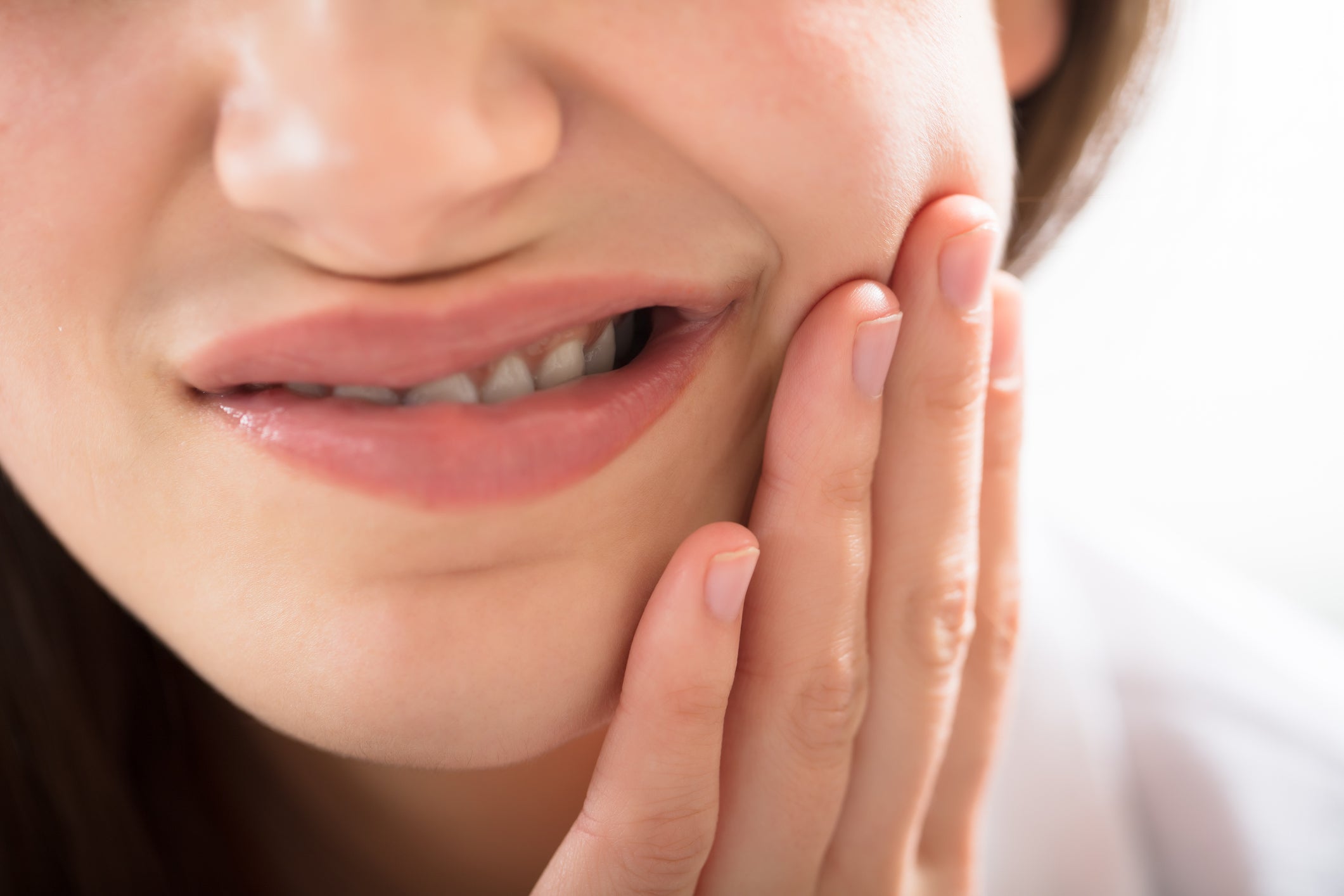
Does your tooth hurt? You’re not alone. Millions of people suffer from tooth pain every year, and it can be a challenge to figure out the cause. Park 56 Dental in New York is here to help you sort through the possibilities. Let’s examine some of the common issues that can cause tooth pain.
Tooth Decay
One of the most common causes of toothache is decay or cavities in the teeth. When food particles remain on the teeth, they are broken down by bacteria which produce acids that erode away at tooth enamel. This eroding action causes holes in the teeth (cavities) which can be quite painful when exposed to hot or cold temperatures or when pressure is applied to them. Visiting your dentist regularly for checkups and cleanings can help prevent this type of pain by catching any cavities early and treating them before they become too severe.
Gum Disease
Gum disease occurs when poor oral hygiene allows bacteria to build up on your teeth and gums, leading to inflammation and infection in the area around your teeth. Gum disease can lead to receding gums, loose teeth, bad breath, and even tooth loss if left untreated — not to mention plenty of painful symptoms! A good preventive measure for avoiding gum disease is to brush two times a day for two minutes each time, flossing once per day as well as seeing your dentist regularly for checkups and cleanings.
Infection
A dental infection occurs when bacteria enter an area inside or around a tooth where it doesn’t belong – such as an abscessed tooth/root canal or wisdom teeth coming through improperly – leading to swelling and pain. If an infection has reached this point, it will likely require professional treatment by a dentist such as antibiotics or even extraction in some cases. Regular visits with your dentist will help keep infections at bay by identifying any potential issues early on before they have a chance to escalate into something more serious requiring more intervention from your dental team.
How to Avoid Tooth Pain
One of the worst sensations is tooth pain; it’s sharp, agonizing, and often comes out of nowhere. Most tooth pain is caused by tooth decay or an abscessed tooth, but there are several steps people can take to help avoid toothaches. Brushing twice daily for two minutes, as well as flossing every day can help ensure that food does not get stuck in between teeth and cause issues. Additionally, remember to use toothpaste with fluoride; this helps protect the enamel on our teeth, which is the protective outer coating to the tooth. Also, be sure to rinse the mouth after meals, and stay away from sugary drinks and snacks. Too much sugar can erode tooth enamel over time. Taking these simple steps can help you prevent tooth pain in the long run.
Visit Park 56 Dental Today!
No one likes dealing with tooth pain, but unfortunately, it’s something that many people experience at some point in their lives. At Park 56 Dental in New York, we understand how difficult it can be when trying to identify what might be causing the discomfort. Contact us today to schedule an appointment or book online!
-
Simple Ways to Motivate You to Floss Every Day
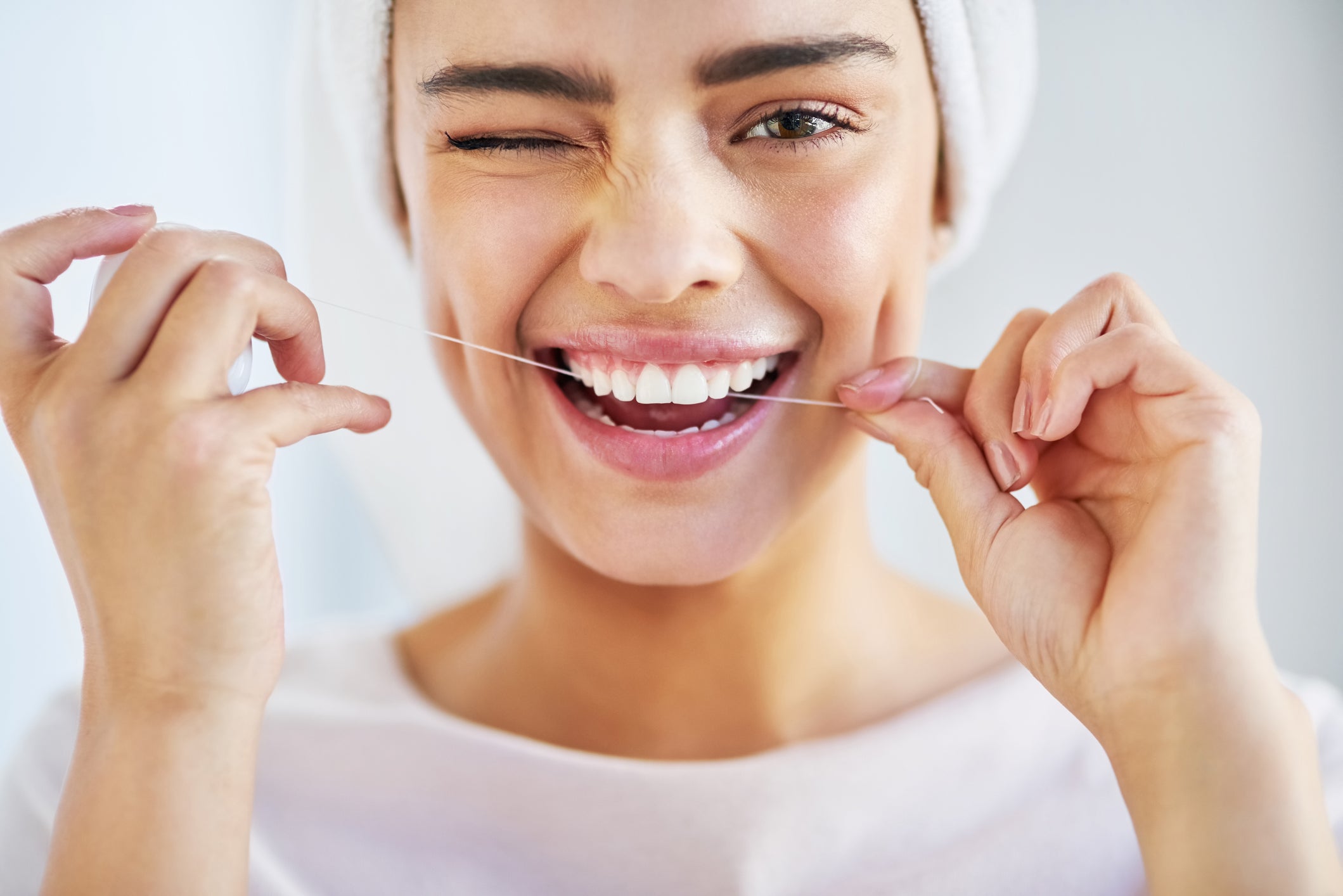
Good oral hygiene is important for a healthy mouth, and one of the most effective ways to achieve it? That’s right—flossing! Flossing is one of the most important habits you can adopt to maintain good oral health. According to research, only 4 out of 10 adults floss daily and only 1 in 3 actually flosses correctly. Daily flossing helps prevent cavities, gum disease, and bad breath. But sometimes it’s hard to remember to do it every day. So here are some simple motivators that might help you get into the habit of regular flossing.
Find a Flossing Product That Works for You
The type of floss you use matters! Many people don’t realize that different types of floss work differently for different types of teeth and mouth needs. Waxed, non-waxed, disposable floss sticks, electric or water flossers—there are so many options available! If one type of product isn’t working well with your teeth and gums, try another! Experiment with different products until you find the perfect one for your personal oral hygiene routine.
Keep Your Floss in Sight
If you have your dental floss handy, you are more likely to remember to use it every day! Try keeping an extra package at the office or even in your pocket or purse wherever you go. You should also keep a container on the sink or bathroom countertop as a constant reminder that it’s time to floss every day!
Set A Goal
One of the best ways to make sure you stick with something is to set a goal. Make a goal that you can realistically achieve, like “I will floss at least twice a week for the next month.” Once you reach that goal, reward yourself by doing something special or purchasing something nice! This will help motivate you to keep going and eventually make daily flossing part of your routine.
Create A Chart
If setting goals isn’t quite your thing, another way to motivate yourself is by creating a chart or calendar that tracks your progress. Every day after you floss, mark it off in your chart or on your calendar as a reminder that you achieved your goal for the day. Seeing this progress can give you an added boost of motivation and encouragement!
Use A Reminder App
If neither of these methods seem like they’d work for you, consider downloading a reminder app onto your phone or laptop. With this type of app, all you have to do is set the time when you want it to remind you each day–it could be right before bedtime, so it becomes part of your nighttime routine–and then just follow through with the action when the reminder goes off!
Get Flossing!
Flossing every day is an important part of maintaining good oral hygiene and overall health. And while remembering to do it can be difficult at times, there are several easy strategies available that can help motivate and remind us so that we don’t forget! Whether it’s setting goals and rewarding yourself for reaching them, using visuals like charts and calendars, or using apps on our phones for reminders—these simple strategies can help ensure we stick with our daily flossing routine.
If any questions remain about flossing or other dental-related topics such as teeth whitening services offered at Park 56 Dental in New York City, please contact us today!
-
Understanding Your Gums
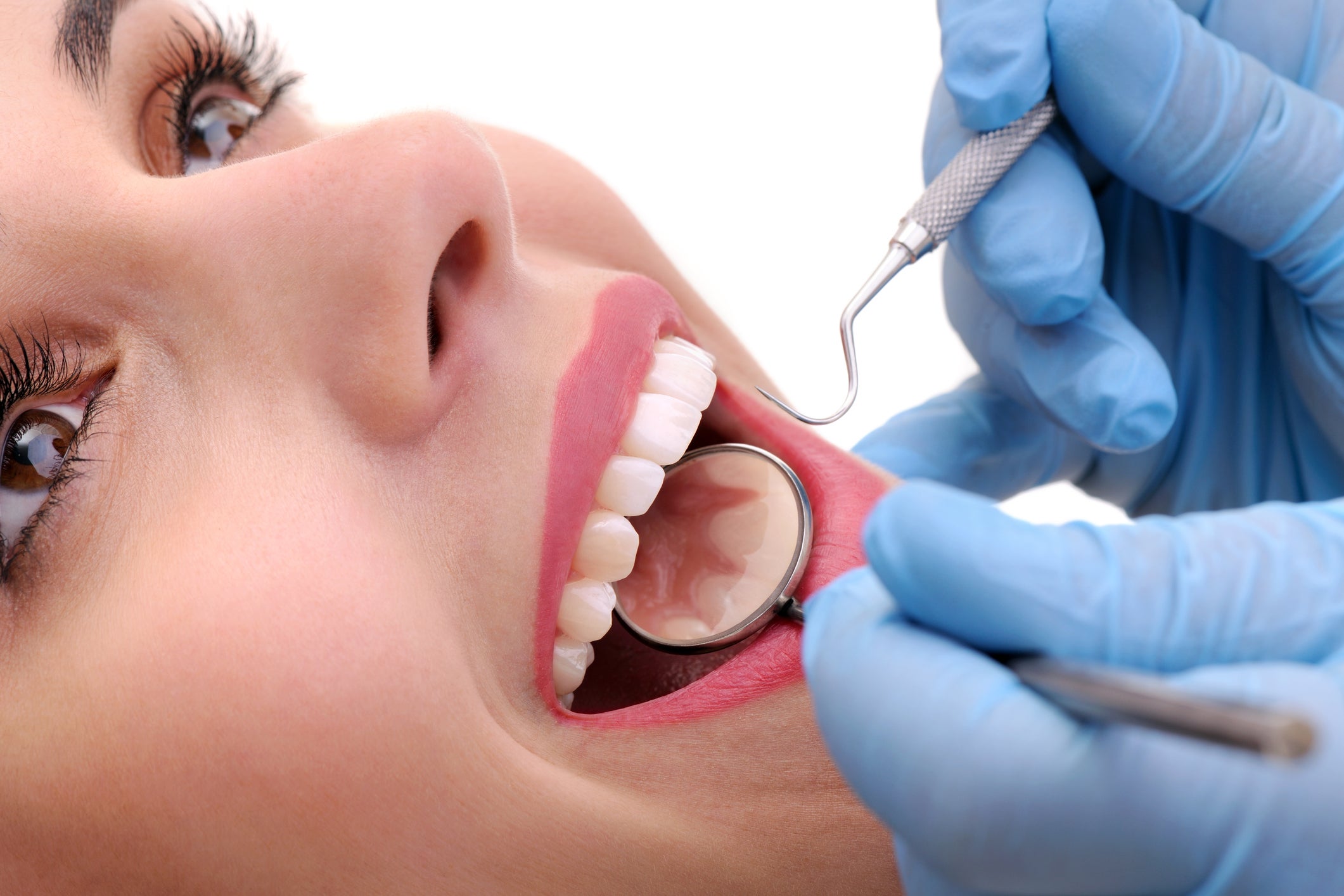
You know about cavities, and tooth decay, and how important it is to brush and keep your teeth healthy. But how much do you know about the health of your gums? The gums are an important part of your mouth, and if they’re not in good shape, your whole mouth can suffer. What do you need to know about your gums?
You might have noticed that your oral hygienist or dentist probes your gums during your regular check-ups. This is to determine if your gums are fitting snugly against your teeth. Unhealthy gums have pockets of space, and the deeper the pocket, the worse your gum health. It may feel like your gums are just being poked, but what the dentist is actually doing is measuring them. The tool used to probe gums is called a periodontal probe, and it’s essentially a tiny ruler. It is inserted into pockets in your gums, and the depth is recorded in millimeters.
Your dentist will keep track of these numbers as a preventive measure against periodontal disease (gum disease). Only your dentist can diagnose gum disease, but in general, 1 to 3 mm means the gums are generally healthy, 4 mm means you need to pay more attention to your oral care, 5 to 6 mm indicates gum disease, and anything over 6 means advanced gym disease. By regularly checking gum pocket depth, your dental team can catch periodontal disease early, when it’s still relatively easy to treat.
You can look for signs of gum disease at home, too. Swollen, sore, or bleeding gums could be a sign of gingivitis or periodontal disease. Gingivitis is the early stage of gum disease, and it happens when plaque builds up at the gumline. Once it progresses to periodontitis, it can affect the bone and tissue supporting your teeth. However, these symptoms can also be caused by other conditions and even vitamin deficiencies. Hormonal changes like pregnancy, illnesses like diabetes, infections, and vitamin C deficiency can all be responsible for gum problems, so you will want to see your dentist to get the right diagnosis.
What can you do to keep your gums healthy? First, pay attention to your oral care routine. Brush twice a day and floss once a day, brushing gently so that you don’t injure your gums. Consider using a water flosser, to clean below the gumline. Eat a nutritious diet, don’t use tobacco products, drink alcohol only in moderation, and take supplements, especially if you think you are not getting enough vitamin C. See your dentist for regular check-ups and cleanings, but in between visits, pay attention to your gums so that you can make a dental appointment if you notice signs of gum disease.
At Park 56 Dental Group, we offer pediatric, prosthodontics, endodontics, oral surgery, Invisalign®, emergency, and sedation dentistry, all at the highest level of treatment. We serve the Midtown, Central Park, Upper East Side, Park Avenue, and all surrounding Manhattan and New York areas, with a patient-centered practice that has hours to fit your schedule. Schedule your complimentary consultation today by contacting us online or calling us at (212) 826-2322
-
Dental Issues That Can Trigger Headaches

A toothache can be extremely painful, and so can a headache. When they occur at the same time, it can be excruciating. Why does this happen? There can actually be a connection between dental issues and headaches. Here, we will take a closer look at why these two things are related and how dental issues can trigger headaches.
- The first factor that connects dental issues and headaches is the trigeminal nerve. This is one of the largest nerves in your head and provides sensation to most of your face. It is also the nerve that relays pain signals for almost all headaches and toothaches. That’s why a toothache or damage to a tooth can lead to a migraine. The pain in the affected tooth irritates the trigeminal nerve, and that causes a migraine headache, with symptoms like nausea, vomiting, and sensitivity to light and sound.
- If you grind your teeth, it can cause referred pain in the head. This means that even though you feel the pain in your head, it doesn’t actually have anything to do with your head. Why does this happen? It actually goes back to the trigeminal nerve. When you grind your teeth, the sensation travels through the nerve and causes a headache. Even if you don’t get a headache, though, tooth grinding, also called bruxism, can cause jaw and face pain, as well as damage to your teeth.
- Temporomandibular joint disorder (TMJ) is a major cause of headaches. With TMJ, a problem with the jaw joint and surrounding muscle causes pain, not just in the joint and muscles, but also in teeth and head. There are two temporomandibular joints, and these are the joints that connect your jaw to your skull. When you clench your jaw or grind your teeth, it can cause TMJ pain, and so can chewing gum and other things that cause your jaw to work harder to chew. If your bite is misaligned or you are missing a tooth, your jaw muscles will have to work harder when you chew, and this can become painful. If TMJ is causing you to have headaches or migraines, your dentist will be able to determine this by examining your teeth, jaw, and muscles.
- An infection can trigger nerve pain. If you have a broken or decayed tooth, you can develop a bacterial infection. When that happens, the bacteria can invade the pulp chamber of the tooth, destroying the sensitive pulp and causing pain, fever, and swelling. If bacteria invade the jaw, an abscess can result, and this can lead to further complications, like a sinus infection or, worse, a serious condition like meningitis or an infection in a major organ.
Preventing dental issues can help prevent headaches, and a big part of keeping your mouth healthy is having the right dentist. At Park 56 Dental Group, we offer pediatric, prosthodontics, endodontics, oral surgery, Invisalign®, emergency, and sedation dentistry, all at the highest level of treatment. We serve the Midtown, Central Park, Upper East Side, Park Avenue, and all surrounding Manhattan and New York areas, with a patient-centered practice that has hours to fit your schedule. Schedule your complimentary consultation today by contacting us online or calling us at (212) 826-2322.
-
The Link Between Dental Health and Rheumatoid Arthritis

Rheumatoid arthritis, a chronic inflammatory condition, happens when the immune system attacks bodily tissues instead of an invading organism. This ailment primarily affects the joints, and it can also impact other body systems. However, what you may not know is that rheumatoid arthritis (RA) can complicate your dental health.
What does RA have to do with your mouth? Scientists have long been investigating a link between RA and periodontal disease. Periodontal disease, also known as gum disease, is a condition that inflames the gums, causing them to pull away from the teeth, which leaves the teeth vulnerable to plaque, cavities, and, ultimately, tooth decay. About 35 percent of the general population has gum disease, but a recent study from John Hopkins Arthritis Center shows that, for RA patients, that number jumps to 70 percent.
What’s the connection? It comes down to inflammation. Because rheumatoid arthritis is an inflammatory disease, it makes sense that it would contribute to the gum inflammation of periodontal disease. There’s more to it than that, though. Research indicates that the same bacteria that cause periodontal disease can also trigger RA. Infection caused by this particular type of bacteria can prompt an inflammatory response that causes rheumatoid arthritis symptoms. So, even as the inflammation of RA can contribute to gum inflammation, poor dental health can lead to symptoms of RA.
How can you use this information to your benefit? A recent study found that when people who suffered from severe rheumatoid arthritis treated their gum disease, their RA side effects improved. Further, as doctors and dentists learn more about the specific bacteria that can be triggers for both gum disease and RA, it will become easier to identify people at risk for rheumatoid arthritis before they even experience any symptoms.
Inflammation from rheumatoid arthritis can contribute to other dental conditions as well, like Sjogren’s Syndrome, which decreases the moisture in your eyes and mouth. Sjogren’s Syndrome can also lead to dysfunction of major organs, so if you have RA, it’s important to have your dentist check your salivary flow to rule out Sjogren’s Syndrome. TMJ disorders can also be aggravated by RA inflammation.
What can you do to protect your health? While most people should have a dental check-up and teeth cleaning twice a year, those with a family history of rheumatoid arthritis should probably go more often. Your dentist can identify an increase in gum inflammation that may be a warning sign for RA and may be able to help you prevent symptoms.
Caring for your dental and overall health starts with finding the right dentist. At Park 56 Dental Group, we offer pediatric, prosthodontics, endodontics, oral surgery, Invisalign®, emergency, and sedation dentistry, all at the highest level of treatment. We serve the Midtown, Central Park, Upper East Side, Park Avenue, and all surrounding Manhattan and New York areas, with a patient-centered practice that has hours to fit your schedule. Schedule your complimentary consultation today by contacting us online or calling us at (212) 826-2322.
-
Dental Health Resolutions for 2023
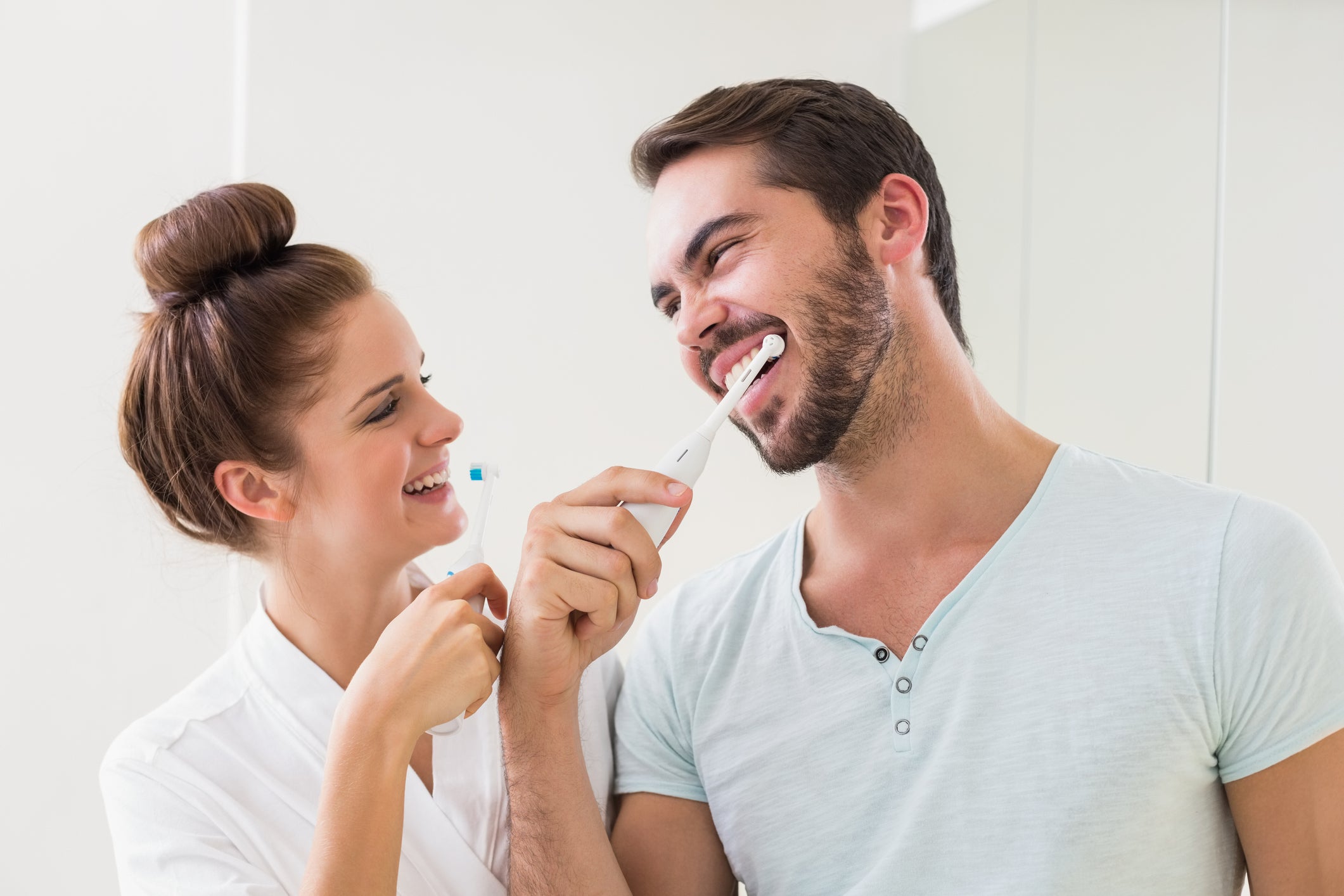
It’s that time of year again, when people make their New Year’s resolutions. What’s your goal for the year? Most people choose something that has to do with their health, but too few make dental health resolutions. This year, why not shake things up and improve your dental health? Here are some suggestions for you, of dental health resolutions for 2023.
- Keep up with the basics. Brush your teeth twice a day, and pay attention to your technique. Using a soft-bristled toothbrush, held at a 45-degree angle to the gumline, brush your teeth gently, for at least two minutes, using circular motions to clean off plaque and bacteria without damaging your gums. Floss at least once each day, using a water flosser or traditional string floss. Keeping up with these simple habits will not only reduce your risk of tooth decay, but can also lower your risk of serious illnesses like cardiac disease or even Alzheimer’s.
- Swap sweet drinks for water. Reducing your sugar intake is important for your oral health, and sugary drinks are at the top of the list of things to avoid. Because sweet drinks prolong your teeth’s exposure to sugar, they do significantly more damage than other kinds of sugary treats. Drinking water, on the other hand, is good for your oral health as well as your overall health. When you’re well-hydrated, you produce the right amount of saliva, and drinking water during the day helps keep your teeth clean between brushings. What’s more, tap water has added fluoride, which can strengthen your tooth enamel.
- Improve your diet. Eating a more nutritious diet may already be on your New Year’s resolution list, especially if you’re trying to lose weight. What you may not realize, though, is that eating well is a big part of maintaining good dental health. The nutrients you consume when you eat fruit, vegetables, legumes, and nuts can protect against inflammation and bacteria, and this helps keep your teeth and gums healthy. Raw fruits and vegetables help remove plaque from your teeth, and dairy products contribute calcium that strengthens your teeth.
- Say no to smoking. Actually, say no to all tobacco products! Using tobacco causes bad breath, tooth discoloration, cavities, gum disease, and many other health conditions, including throat, lung, and oral cancer. Smokers are also more likely to lose their teeth than other people. Make this the year you quit, seeking professional help if you need to, and your health will begin to improve.
- Reduce dry mouth. Saliva plays an important role in maintaining your oral health. Not only does it wash away food and debris, but it actually helps strengthen your enamel and neutralize your mouth’s pH level. If you have dry mouth, it can lead to dental problems, so combat it by drinking plenty of water, chewing sugar free gum, drinking milk or consuming dairy products, and limiting alcohol consumption. You can also talk to your dentist about medications you’re taking and if they could be causing this problem.
- Make a habit of seeing your dentist. Having a dental check-up and cleaning twice a year helps keep your teeth clean and healthy. What’s more, seeing you every six months allows your dentist to spot minor issues more easily, before they turn into serious problems. This will save you not just pain and inconvenience, but also money, since major dental issues can be far more expensive than simple maintenance. Your dentist can also recommend treatments to address any dental problems you may be experiencing, like an improper bite or damaged tooth.
At Park 56 Dental Group, we offer pediatric, prosthodontics, endodontics, oral surgery, Invisalign®, emergency, and sedation dentistry, all at the highest level of treatment. We serve the Midtown, Central Park, Upper East Side, Park Avenue, and all surrounding Manhattan and New York areas, with a patient-centered practice that has hours to fit your schedule. Schedule your complimentary consultation today by contacting us online or calling us at (212) 826-2322.
-
Everything You Need to Know About Canker Sores
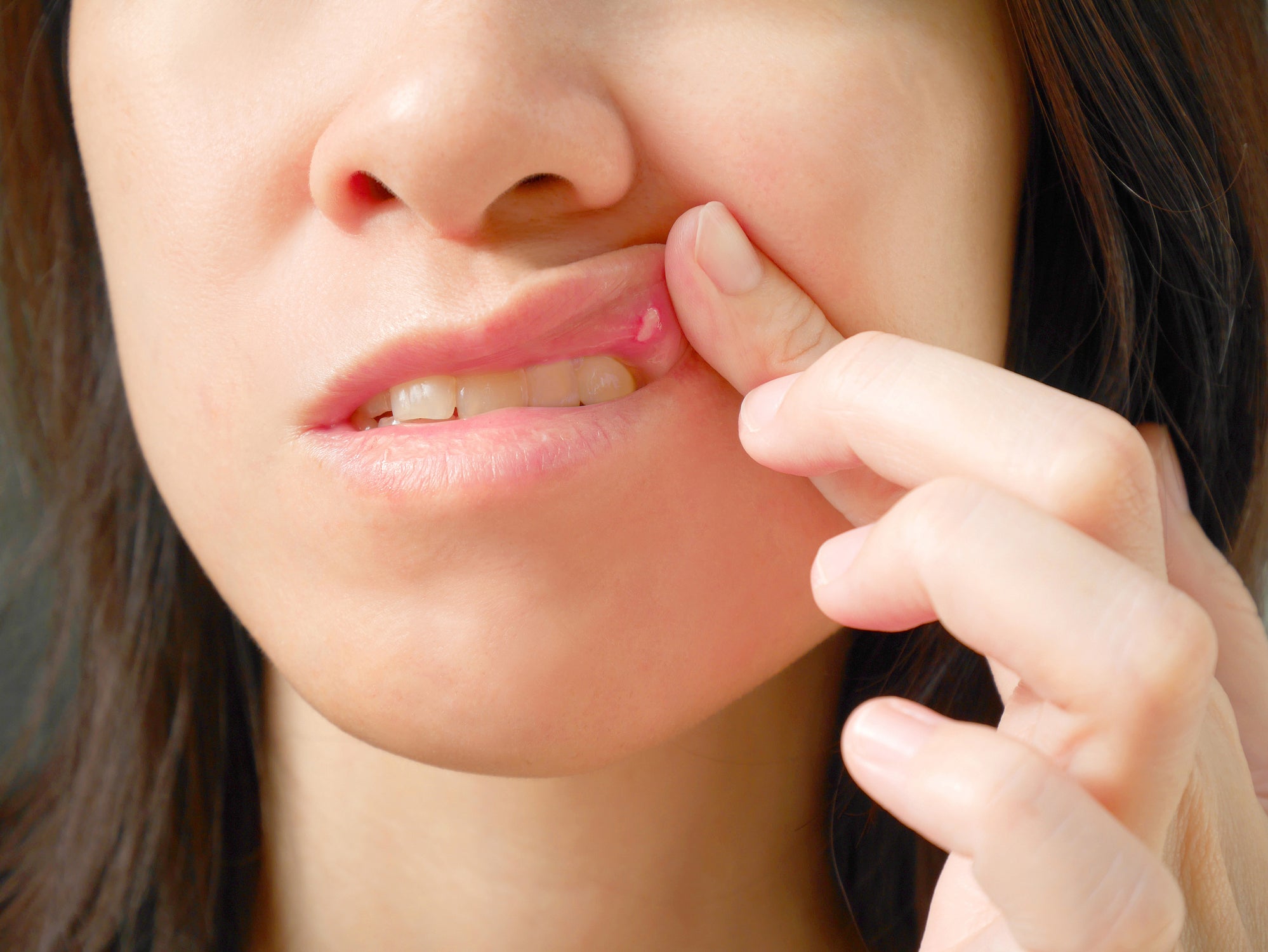
Canker sores are small ulcers that form inside the mouth. They can be very painful and make it difficult to eat or drink. Most canker sores heal on their own within 1-2 weeks. However, there are some things you can do to help relieve the pain and speed up the healing process. In this blog post, we will discuss everything you need to know about canker sores.
What Causes Canker Sores?
The exact cause of canker sores is unknown. However, there are several things that may contribute to their formation, including:
- Stress
- Hormonal changes (e.g., during puberty or menopause)
- Nutritional deficiencies (e.g., iron, vitamin B12, or folic acid)
- Trauma to the mouth (e.g., from toothpaste that is too abrasive or braces that rub against the inside of the mouth)
- Use of certain medications (e.g., blood thinners or drugs that contain sulfur)
- Infections (e.g., viral infections such as herpes simplex virus type 1 or bacterial infections such as strep throat)
How Are Canker Sores Treated?
Most canker sores heal on their own within 1-2 weeks. However, there are some things you can do to help relieve the pain and speed up the healing process. These include:
- Eating soft foods and avoiding spicy, acidic, or crunchy foods that might irritate the sore
- Rinsing your mouth with a saltwater solution
- Applying a topical numbing agent
- Taking over-the-counter pain relievers such as ibuprofen or acetaminophen
- Applying a topical steroid cream
- Undergoing laser treatment (this is usually done by a dentist or doctor)
How Can Canker Sores Be Prevented?
Canker sores are most common in teens and young adults, and can be caused by stress, hormonal changes, or a lack of certain nutrients. While canker sores are not contagious, they can be difficult to get rid of once they form. However, there are some things that can be done to prevent canker sores from forming in the first place:
- Reducing stress through relaxation techniques such as yoga or meditation
- Avoiding foods that you know trigger canker sores
- Practicing good oral hygiene by brushing your teeth twice a day and flossing daily
- Using a soft toothbrush and toothpaste without fluoride
- Wearing mouthguards when playing sports
If you experience frequent or severe canker sores, you should see a dentist or doctor to rule out any underlying medical conditions.
Contact Park 56 Dental Today for Canker Sores Treatment and Advice
If you’re dealing with canker sores, Park 56 Dental can help. We can provide you with tips on how to prevent canker sores from forming in the first place, and we can also provide you with treatment options if you do develop one. Don’t suffer in silence–contact Park 56 Dental today. We’ll be happy to help you get your mouth back to feeling healthy and comfortable again.
-
How to Avoid Wisdom Teeth Infections
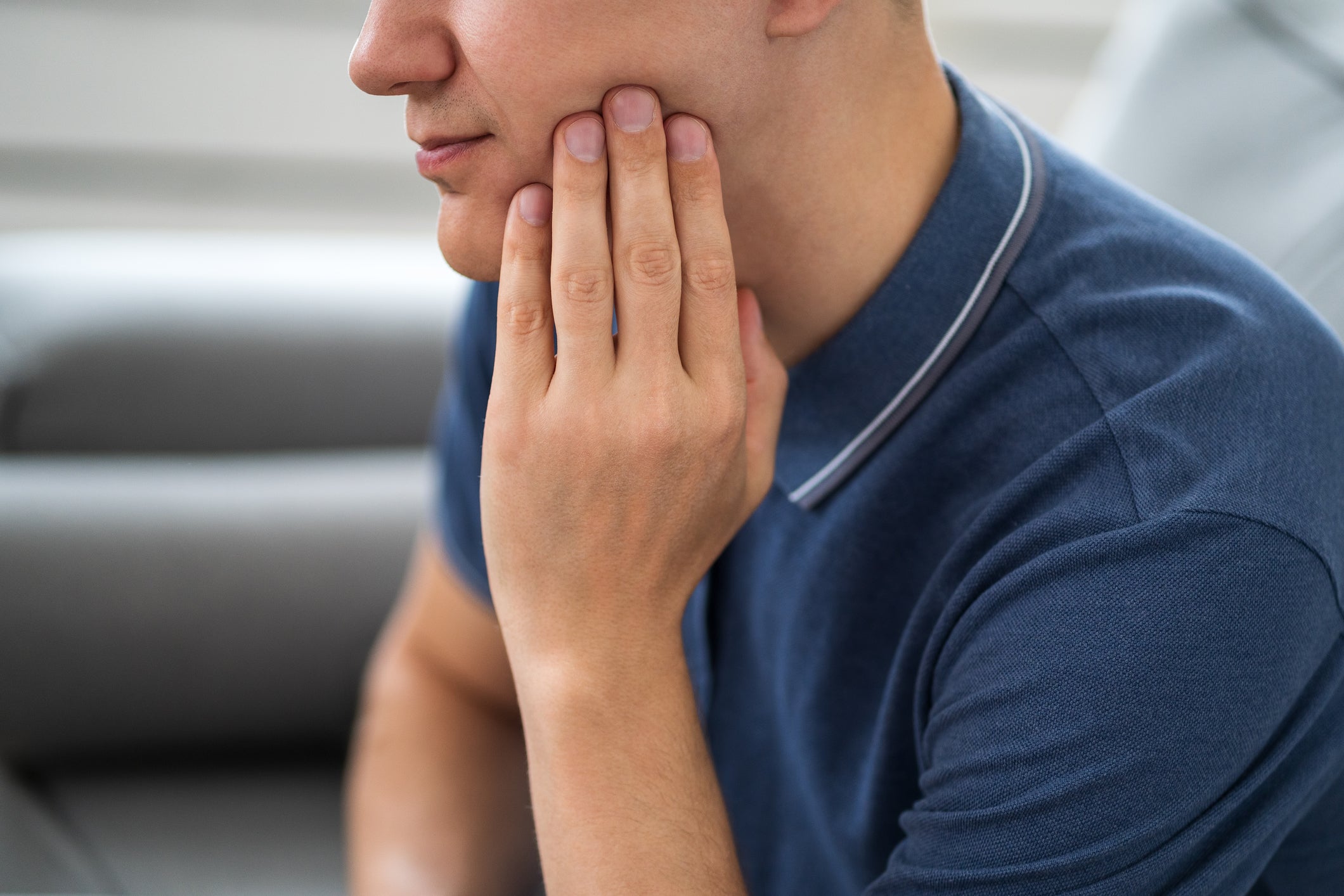
Many people experience wisdom teeth infections at some point in their lives. While wisdom teeth are not necessary, they can cause problems if they do not come in properly. If your wisdom teeth are impacted or crowded, they may be more likely to develop an infection. Fortunately, there are ways to avoid wisdom teeth infection. In this blog post, we will discuss the symptoms, risks, causes, and treatment of wisdom teeth infections as well as how to avoid them.
What Are the Symptoms of a Wisdom Tooth Infection?
Wisdom tooth infections can cause several different symptoms. These symptoms may include pain, swelling, redness, and difficulty opening your mouth. You may also experience bad breath, a foul taste in your mouth, and a fever. If you experience any of these symptoms, you should see a doctor as soon as possible.
What Are the Risks of a Wisdom Tooth Infection?
Wisdom tooth infections can lead to several complications if they are not treated properly. These complications may include damage to the surrounding teeth, jawbone loss, and tissue death. If the infection spreads to other parts of the body, it can potentially be fatal. Therefore, it is very important to see a doctor if you think you may have an infection.
What Causes Wisdom Teeth Infection?
There are several things that can contribute to wisdom teeth infection. Impacted or crowded teeth are more likely to develop an infection because they are difficult to clean properly. If you have diabetes or a weakened immune system, you may also be more susceptible to developing an infection.
How to Treat an Infection
If you think you may have a wisdom tooth infection, it is important to see a doctor as soon as possible so that you can begin treatment. The most common treatment for wisdom tooth infection is antibiotic therapy. Antibiotics can help kill the bacteria that are causing the infection and reduce inflammation. Sometimes surgery is necessary to remove the infected tooth or drain the abscess that has formed.
How to Avoid an Infection
The best way to avoid wisdom tooth infection is to practice good oral hygiene and visit your dentist regularly. Brush and floss your teeth twice a day and try to avoid eating sugary or sticky foods that can get stuck in your teeth. If your wisdom teeth are impacted or crowded, your dentist may recommend having them removed before they have a chance to become infected.
When Should I See a Doctor?
If you think you may have a wisdom tooth infection, it is important that you see a doctor right away so that your condition does not worsen. Your doctor will likely perform a physical examination and take x-rays of your mouth to make a diagnosis. He or she will then determine what course of treatment is best for you based on the severity of your condition.
Contact Park 56 Dental Today!
Wisdom teeth infections can be painful and dangerous if left untreated. It is important to practice good oral hygiene and see your dentist regularly in order prevent them. Be sure see your doctor right away if any of the following symptoms: pain, swelling, redness, difficulty opening your mouth, bad breath, foul taste in mouth, or fever. These could be signs of an underlying problem requiring immediate medical attention.
If you are experiencing any of the symptoms mentioned in this blog post, please contact Park 56 Dental as soon as possible. We can help you get the treatment you need to avoid an infection and keep your smile healthy and beautiful.
RECENT POSTS
categories
- Uncategorized
- Cosmetic Dentistry
- Veneers
- Healthier Teeth
- Teeth Whitening
- Dental Health
- Video
- Dental Emergencies
- Invisalign
- Dental Implants
- Root Canal
- Sedation Dentistry
- Infographic
- Dental Crowns and Bridges
- Dental Anxiety
- Gum Disease
- COVID-19
- Bad Breath
- New York Dentist
- Cut out sugar
- General Dentistry
- Oral Health
- Oral Cancer
- Dry Mouth
- Gum Health
- Toothache
- Dental Sealants
- Cavities
